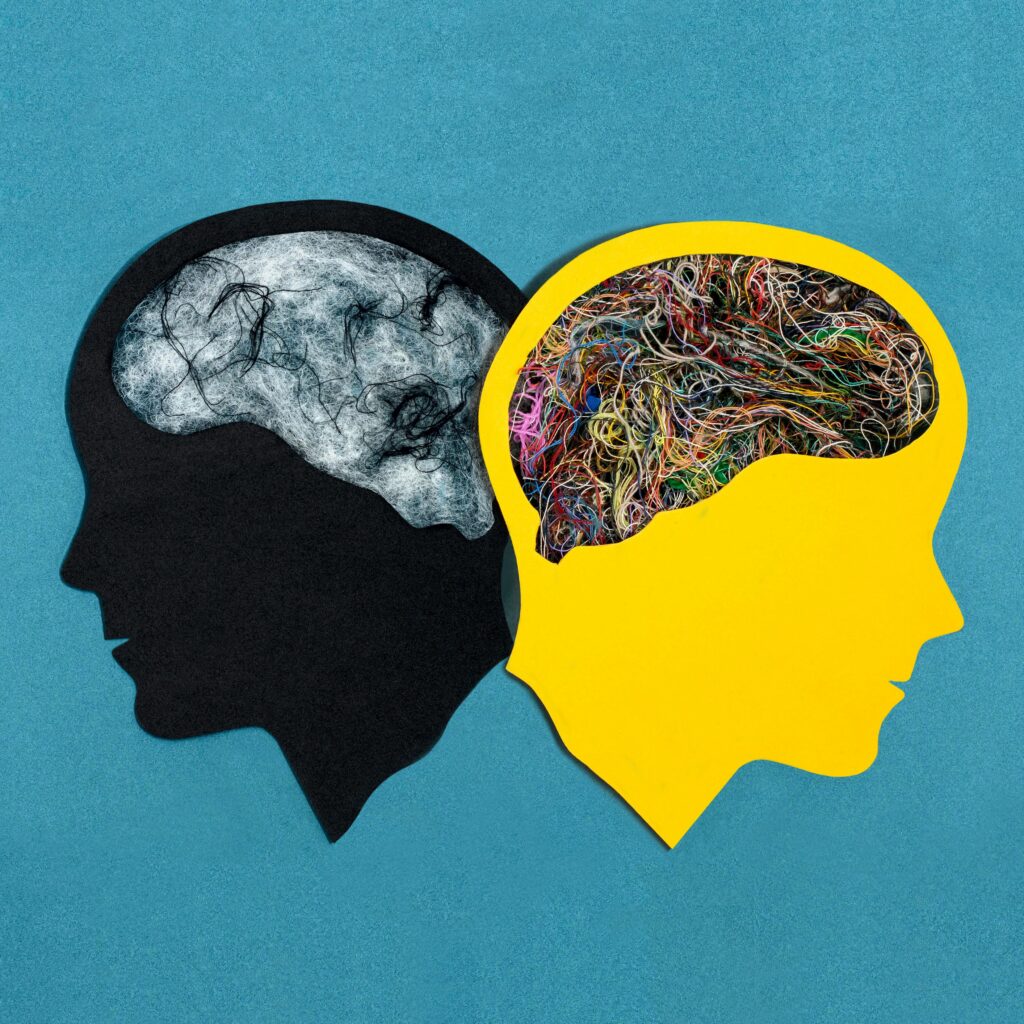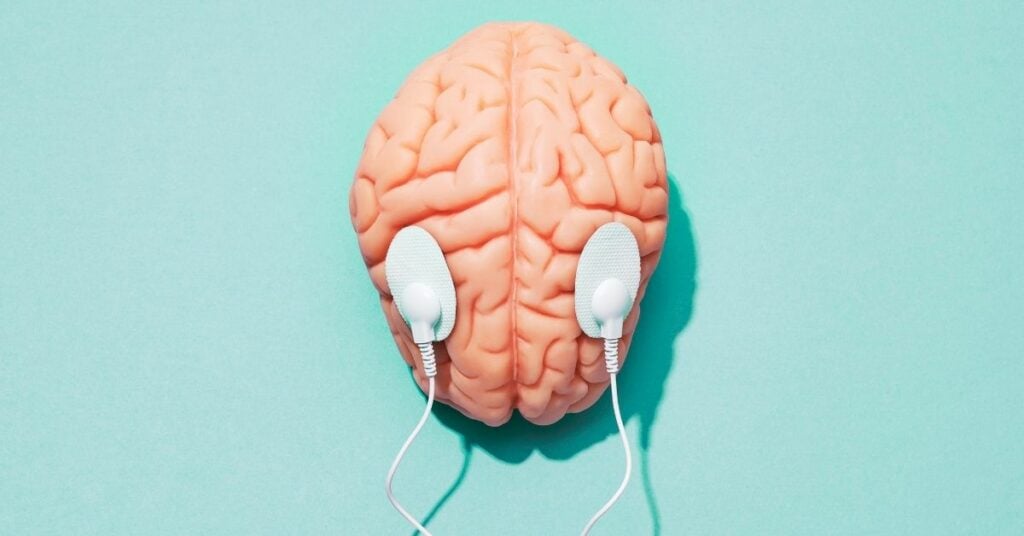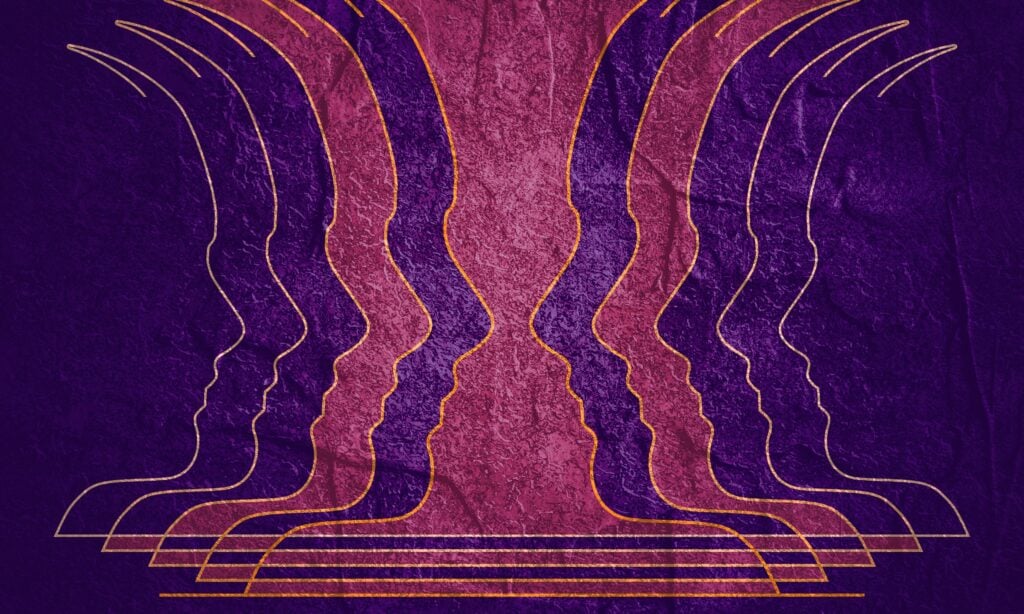What is bipolar disorder?
Reviewed by Brooks Baer, LCPC, CMHP

Bipolar disorder is a mental illness involving extreme shifts in mood and energy. Formerly called “manic depression,” this disorder causes you to swing between episodes of two emotional states: mania or hypomania (“high highs”) and depression (“low lows”). The world “bipolar” refers to these two opposite “poles” of emotion.


People with bipolar disorder can have milder moods between manic and depressive episodes. However, in some cases, people have symptoms of mania and depression simultaneously. These “mixed” episodes, which aren’t severe or extensive enough to result in a diagnosis of bipolar disorder, are called “depression with mixed features.”
Symptoms of bipolar disorder
Symptoms of bipolar disorder change depending on what kind of episode a person is experiencing. For example, manic episodes are characterized by abnormally high self-confidence, while depressive episodes are connected to low self-esteem.
Still, some typical signs of bipolar disorder are consistent regardless of whether the person is experiencing mania or depression. These include:
- Extreme mood swings
- Difficulty concentrating or making decisions
- Insomnia, or less need for sleep
- Decreased appetite
Manic symptoms
If you have bipolar disorder and you’re experiencing mania, you feel extremely confident and full of energy. You may act in risky, impulsive ways or have hallucinations. Hypomania, a less extreme form of mania, doesn’t result in delusions or reckless risk-taking.
Symptoms of mania include:
- Feeling overly happy or excited
- High energy
- Speaking very quickly
- Poor decision-making
- Increased sexual desire
- Risky or impulsive behaviors
- Sudden, intense irritability
Depressive symptoms
If you have bipolar disorder and go through a depressive episode, you experience the symptoms of major (or “clinical”) depression. A therapist can help you determine if your symptoms suggest clinical depression or a bipolar depressive episode.
Bipolar depression symptoms include:
- Sadness, emptiness, or hopelessness
- Loss of interest in activities that once brought pleasure or joy
- Low energy
- Slow speech
- Low sexual desire
- Anxiety or restlessness
- Suicidal thoughts (suicidal ideation)
Bipolar disorder in children and teens
It’s often difficult to diagnose children and teens with bipolar disorder. Many bipolar symptoms can also point to other forms of mental illness, such as attention-deficit/hyperactivity disorder (ADHD) or oppositional defiant disorder (ODD). It’s also worth keeping in mind that mood swings are also common in children and teens without mental health conditions, especially as they go through puberty.
If your child or teenager is showing signs of bipolar disorder, seek a professional opinion from their doctor and/or a licensed therapist.
Types of bipolar disorder
Bipolar I: Bipolar I is characterized by manic and depressive episodes. Manic episodes last at least a week or result in hospitalization, while depressive episodes last at least two weeks. This form of bipolar disorder typically has the most extreme symptoms. People with bipolar I may also experience depression with mixed features.
Bipolar II: People with bipolar II experience hypomanic and depressive episodes, but they don’t experience full-on mania.
Cyclothymic disorder: People with cyclothymic disorder have had hypomanic and depressive symptoms for at least two years (or one year for children and teens). These symptoms may not be severe enough to match the specific definitions of hypomania or major depression.
What causes bipolar disorder?
Just like with depression or other mental health conditions, there’s no one exact cause of bipolar disorder. But certain risk factors may increase your likelihood of developing it, including:
- Biochemistry: Some studies have shown ties between bipolar disorder and chemical imbalances in the brain, though this connection is still being explored.1
- Genetics: You may be at increased risk of bipolar disorder if a relative has been diagnosed with it.2
Certain additional factors can trigger bipolar symptoms in people with a genetic or biological susceptibility for the disorder. These triggers include substance use, physical illness, trauma, and sleep disturbances.
Is bipolar disorder hereditary?
Genetics play a role in who’s diagnosed with bipolar disorder, but they don’t have the final say. Someone can be diagnosed even if they have no family history of mental illness. Your risk may increase if a family member has been diagnosed, but there’s no guarantee you’ll have bipolar disorder if your parent has it.
Strategies for management and treatment
When treating bipolar disorder, therapists typically rely on medication, psychotherapy, or a combination of approaches.
Medical therapy: Mood stabilizers, antidepressants, antipsychotic drugs, and other medications can be effective on their own or in combination with talk therapy. Your psychiatrist may prescribe anti-anxiety pills or sleep medication to help with some symptoms.
Other forms of medical therapy may also help. If you have more serious symptoms, such as severe mania, depression, psychosis, or suicidality, electroconvulsive therapy (ECT) and transcranial magnetic stimulation (TMS) may prove effective. These techniques stimulate the brain using electric or magnetic waves, respectively, to help treat the disorder.
Psychotherapy: Your therapist may choose from a number of methods to help you strengthen your mental health. Cognitive behavioral therapy (CBT) can help you challenge unhelpful thought patterns, while interpersonal and social rhythm therapy (IPSRT) can help you establish stability through a daily routine.
Lifestyle changes: These changes can help alleviate some symptoms of bipolar disorder, but note that they aren’t a cure on their own and shouldn’t be used without some form of professional treatment.
Common lifestyle changes for bipolar disorder include:
- Following a daily routine
- Sleeping, eating, and exercising regularly
- Avoiding alcohol and drugs
- Trying new hobbies
- Keeping a journal of your moods and symptoms
- Investing in healthy relationships
“Am I bipolar?”
If you recognize signs and symptoms of bipolar disorder in yourself, speak with your doctor. No website, friend, or family member can diagnose you with a mental health condition. Only a licensed professional can formally diagnose you.
See your primary care doctor: A good first step is to see your regular physician and share your symptoms and concerns. They can conduct lab tests and a physical to rule out health conditions with similar symptoms.
Speak with a therapist: Your doctor may refer you to a therapist, or you may choose to look for one on your own. Either way, your therapist can evaluate your symptoms and give you a more in-depth view of your diagnosis. Browse our directory to find a licensed mental health professional near you.
Your therapist may diagnose you with bipolar disorder or a different disorder, such as anxiety or depression. Whatever your formal diagnosis may be, your therapist can offer treatment methods to help you start feeling healthier.
Help is available now: If you’re in crisis, support is available 24/7. Call the free, confidential 988 Lifeline at 988 or 1-800-273-TALK (8255), or text HOME to 741741 for the Crisis Text Line.

Sources
About the author
The editorial team at therapist.com works with the world’s leading clinical experts to bring you accessible, insightful information about mental health topics and trends.
Related articles

Mood disorders: Symptoms, causes, treatment
Learn about mood, types of mood disorders, what causes mood disorders, how to...

Electroconvulsive therapy (ECT)
Electroconvulsive therapy (ECT) can be a highly effective treatment for severe...

Borderline personality disorder (BPD)
Borderline personality disorder (BPD) is a mental health disorder that can...

Grief, bipolar disorder, and a father’s love
Losing a parent is painful for everyone. When you’re also living with bipolar...
